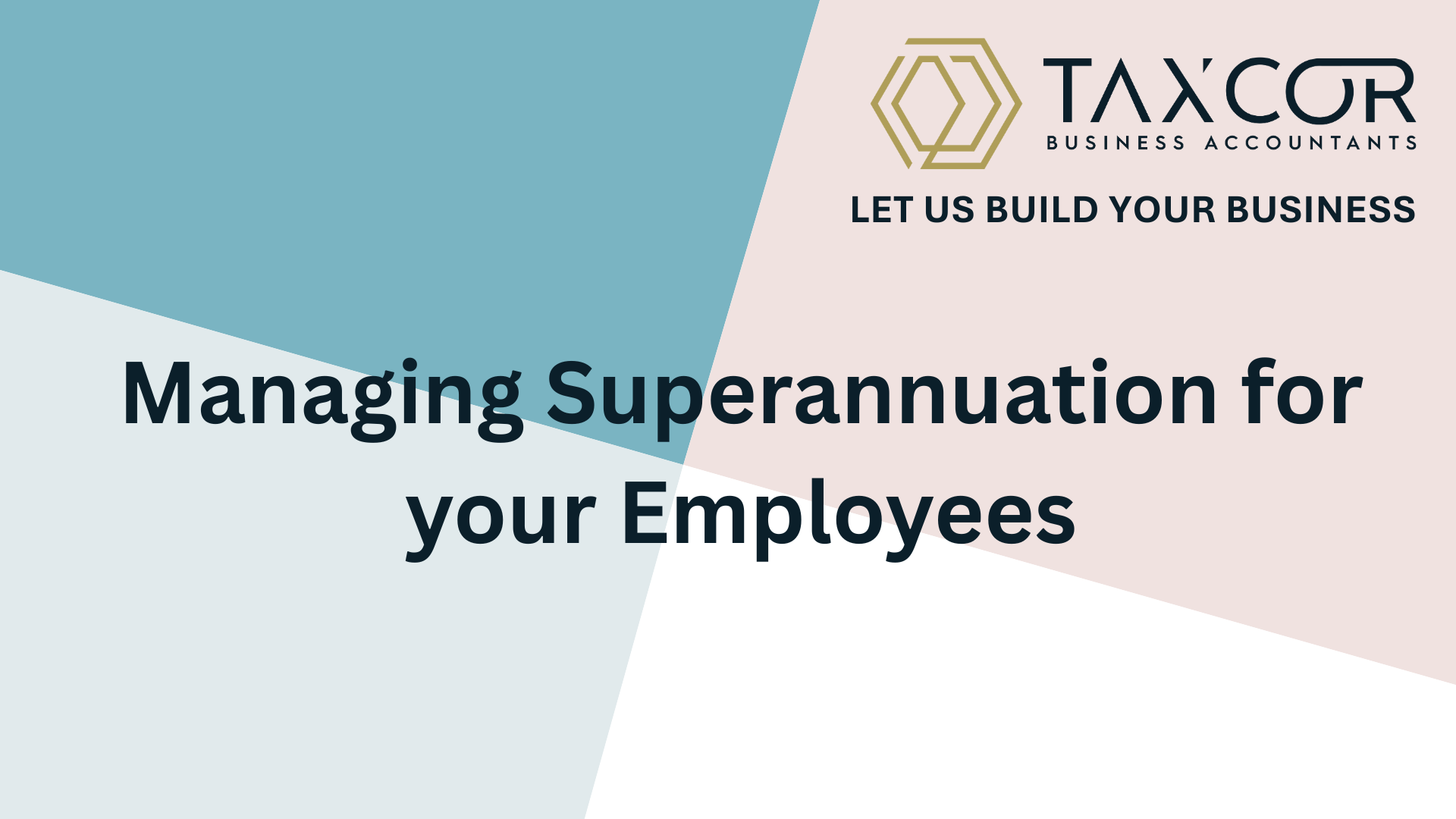Managing Superannuation for Your Employees: A Guide for Small Business Owners

If you are an employer, it is your obligation to correctly pay your employees superannuation on time. Ensuring timely and accurate superannuation payments is crucial for compliance with the Superannuation Guarantee (SG) requirements and for the financial well-being your employees.
However, there are additional two areas of superannuation that you need to be mindful of.
Stapled Super Fund
A stapled super fund is an existing super account linked, or 'stapled', to an individual employee so it follows them as they change jobs. This aims to reduce account fees, avoiding new super accounts being opened every time an employee starts a new job. If you don't meet this obligations, penalties may apply.
You can check your employees stapled super fund on your ATO Online Services for Business Account.
Complying Super Fund
Section 290-75 ITAA97 requires that, to deduct a contribution made to a superannuation fund, the fund must be a complying super fund. Otherwise, contributions to non-complying funds are not deductible. The employer will also have a liability to fringe benefits tax, as these contributions to a non-complying superannuation fund are not excluded from the definition of fringe benefit in s 136 Fringe Benefits Tax Assessment Act 1986 (Cth).
In essence, if payment made to complying super fund, employer contributions are eligible to be claimed as an income tax deduction by the employer. There is no actual limit on the amount of the deduction that can be claimed by an employer in relation to contributions made in respect of an employee.
As an employer, you must pay super for eligible employees. To avoid the super guarantee charge (SGC), payments must be received by the employee's fund on or before the quarterly super due dates.
Payments can be made at least 4 times a year. This applies from the day employees start working for you. Payment due dates occur quarterly.
- Quarter 1: 1 July – 30 September, Payment due date, 28 October
- Quarter 2: 1 October – 31 December, Payment due date, 28 January
- Quarter 3: 1 January – 31 March, Payment due date, 28 April
- Quarter 4: 1 April – 30 June, Payment due date, 28 July.
When a super due date falls on a weekend or public holiday, your contribution must be received by the fund on or before the next business day.
You can also make payments more frequently than quarterly, for example fortnightly or monthly. If you do, ensure you pay your total super guarantee (SG) contribution for the quarter by the due date.
If you don't pay an employee's super guarantee (SG) amount in full, on time and to the right fund, you must pay the super guarantee charge (SGC).
The SGC includes:
1. The SG shortfall, made up of:
a. SG calculated on salary and wages (including any overtime)
b. any choice liability, based on the shortfall and capped at $500
2. Nominal interest of 10% per annum (accrues from the start of the relevant quarter)
3. Nn administration fee of $20 per employee, per quarter.
ATO can impose penalty and take disciplinary action if you fail to meet the superannuation guarantee obligations. You will be liable for a Part 7 penalty – under Superannuation Guarantee (Administration) Act 1992 (SGAA).
Payday superannuation
From 1 July 2026, employers will be required to pay their employees' super at the same time as their salary and wages. We will publish more information once the legislation is passed.
Please note: Many of the comments in this publication are general in nature and anyone intending to apply the information to practical circumstances should seek professional advice to independently verify their interpretation and the information’s applicability to their particular circumstances.
